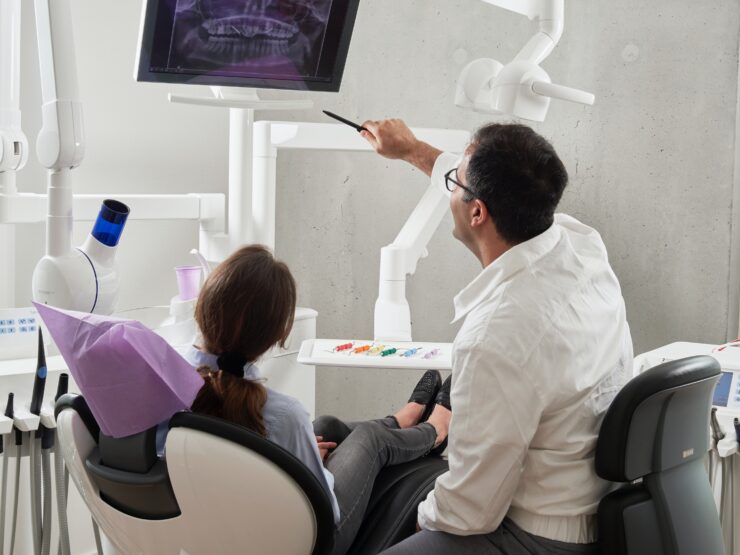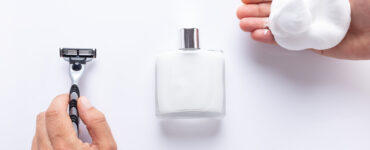Your dentist is your partner in maintaining a healthy smile, and there’s more to dental care than just brushing and flossing. Your overall well-being is closely linked to your oral health, and your dentist has valuable insights they want to discuss with you. In this article, we’ll explore seven essential things your dentist wishes you knew. From the importance of regular checkups to the impact of your diet on your teeth, these insights will help you prioritize your dental health and keep your smile radiant for years to come.
Regular Checkups Are Vital
Your dentist emphasizes the importance of regular checkups. Regular appointments enable the early identification of dental concerns, averting their progression into more serious issues. A simple checkup can catch concerns like cavities or gum disease before they become painful or require extensive treatment. Don’t skip these visits; they are essential for maintaining your oral health. Your dentist’s trained eye can spot issues that you might miss and provide tailored advice for your dental care routine. Keep in mind that dental health is a vital component of overall well-being, and routine checkups can assist in recognizing broader systemic health issues too. Your dentist is your partner in maintaining both oral and overall health.
Proper Brushing And Flossing
Effective brushing and flossing are foundational to oral health. Your dentist wants you to know that thorough brushing twice a day and daily flossing remove plaque and food particles, preventing tooth decay and gum disease. Use fluoride toothpaste and a soft-bristle brush, and don’t forget to clean your tongue. Brushing for at least two minutes and using gentle, circular motions ensures comprehensive cleaning. Proper technique matters, so consider asking your dentist or hygienist for a demonstration during your next visit to ensure you’re getting the most out of your daily routine. They can also recommend dental products that are specifically tailored to your oral health needs.
Diet Matters
What you eat impacts your dental health. Minimize your intake of sugary and acidic foods, as they can cause tooth decay and enamel erosion. Instead, choose a well-rounded diet abundant in fruits, vegetables, and dairy products, which offer vital nutrients for maintaining strong teeth. Additionally, your dentist can recommend foods that promote oral health, such as those high in calcium and low in added sugars. It’s not just what you eat, but how often you eat it, that matters. Frequent snacking can contribute to dental issues, so consider planning balanced meals and snacks to support your oral health. Consult with your dentist for dietary advice that aligns with your oral health goals.
Oral Hygiene Beyond Teeth
Proper oral hygiene isn’t just about your teeth. Your dentist wants you to know that cleaning your tongue and the roof of your mouth helps reduce bad breath and bacterial buildup. A tongue scraper or gentle brushing with your toothbrush can effectively remove bacteria and debris, contributing to fresher breath and better oral hygiene. Don’t forget to replace your toothbrush regularly, as worn bristles are less effective at cleaning your teeth and gums. Your dentist can recommend the right tools for keeping your entire oral cavity clean and healthy, from specialized tongue cleaners to gentle mouth rinses that promote a healthy oral environment.
Don’t Ignore Gum Health
Gum health is crucial. Bleeding, swollen, or receding gums are signs of gum disease. Neglected, gum disease can lead to both tooth loss and additional health complications. Your dentist can provide advice on preserving gum health, including correct brushing and flossing methods, as well as emphasizing the significance of regular professional cleanings. In addition to regular checkups, pay attention to your gum health at home and promptly report any changes or concerns to your dentist. Early intervention is key to preventing the progression of gum disease. Your dentist can also provide recommendations for specialized toothbrushes and flossing tools that cater to your gum health needs.
Avoid Tobacco
Participating in tobacco use greatly increases the chances of developing oral cancer, gum disease, and experiencing tooth loss. Taking the step to quit smoking and other forms of tobacco is one of the most beneficial actions you can take to improve both your oral and overall health. Your dentist is equipped to offer resources and support to assist you in breaking free from this habit and enhancing your oral well-being. It’s not just cigarettes; chewing tobacco and electronic cigarettes can also have detrimental effects on your oral health. Your dentist can offer guidance on cessation programs and strategies to ensure your success in quitting tobacco for good. They can also monitor your oral health for any signs of tobacco-related issues.
Customize Your Dental Care
Your dental needs are unique. Work closely with your dentist to create a personalized dental care plan that considers your specific concerns and goals. This partnership ensures you receive the best possible care. Your dentist can recommend specialized treatments or adjustments to your oral hygiene routine based on your individual circumstances, ensuring optimal oral health and a beautiful smile. Ask questions and share your oral health goals with your dentist during your visits to tailor your care to your needs. Your dentist is here to support you in achieving and maintaining excellent oral health and can provide guidance on the latest advancements in dental technology and treatments.




